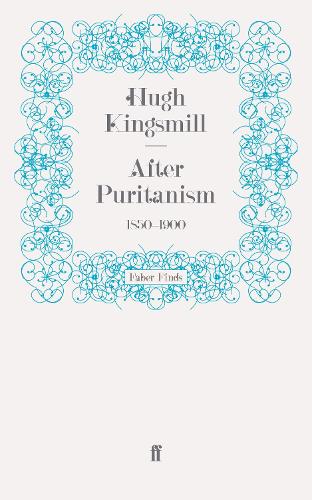
After Puritanism: 1850-1900
(Paperback, Main)
Publishing Details
After Puritanism: 1850-1900
By (Author) Hugh Kingsmill
Faber & Faber
Faber & Faber
10th December 2009
Main
United Kingdom
Classifications
Tertiary Education
Non Fiction
820.9382
Physical Properties
Paperback
222
Width 135mm, Height 216mm, Spine 16mm
280g
Description
Behind the big names of twentieth-century literature there stands a shadow cabinet of writers waiting to take over once the Wind of Change has blown. My own vote goes to Hugh Kingsmill as leader of this opposition.' Best of Hugh Kingsmill. After Puritanism, 1850-1900 provides strong evidence for such a judgment. The book comprises four essays and their purpose is best explained by Hugh Kingsmill himself: emotionalism over the young, against the Puritan doctrine of general depravity, the growing sense of Christ's humanity, and he rejection of eternal punishment: in Samuel Butler, the attack on the Puritan theory of the family, and the questioning of Christian morality as well as Christian theology: in Frank Harris, the chaos of late Victorian values, the question of complete verbal licence in literature, and the reappearance of Shakespeare as a human being: in W. T. Stead, the attempt of a Puritan born too late to simplify the modern world. a long time. George Orwell thought highly of it and tried unsuccessfully to get it reissued. Belated though it may be, Faber Finds is happy to bring about his wish.
Author Bio
Hugh Kingsmill (1889-1949) was a novelist, a biographer of note and a talker of outstanding verve and brilliance. In his introduction to The Best of Hugh Kingsmill, Michael Holroyd wrote, 'Behind the big names of twentieth-century literature there stands a shadow cabinet of writers waiting to take over once the Wind of Change has blown. My own vote goes to High Kingsmill as leader of this opposition'. Hugh Kingsmill wrote over thirty books, and Faber Finds, to mark the sixtieth anniversary of his death, is reissuing four of them: After Puritanism, Frank Harris, Samuel Johnson, and his anthology Johnson Without Boswell.
